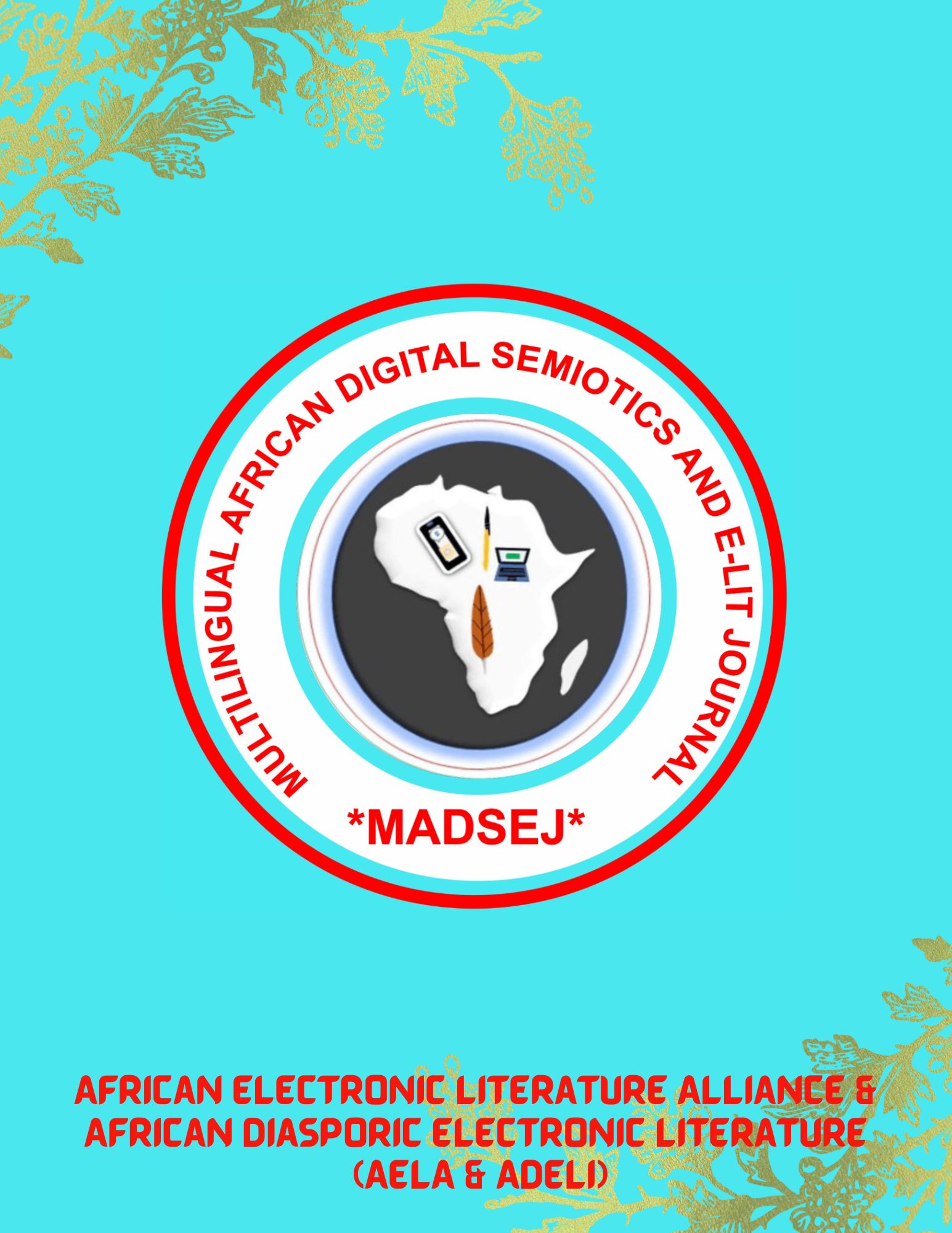Editorial
DOI:
https://doi.org/10.17613/gn8bsr68Keywords:
African Digital Humanities, Electronic literature, Digital culture, Digital divide, Generative text, littérature numérique, lecture double, lecture étroite , Procedural model, theory, Computer generated-novel, Modèle procédural, création numérique, humanités numériques, Philippe Bootz, Richard Ajah, Davin Heckman, Charles Berebon, Alan Bigelow, Yohanna Waliya, Nick MontfortAbstract
This Maiden Edition of Multilingual African Digital Semiotics and E-lit Journal (MADSEJ) is dedicated to selected peer-previewed articles harvested from the second annual conference African Electronic Literature Alliance International Workshop Conference (AELAIWC2022) whose theme was E-Literary Procedural Creativity on Digital platforms and Metaverse/création numérique procédurale de la Littérature métaverselle et littérature dispositive, virtually anchored from the Centre for Digital Humanities University of Lagos (CEDHUL).
Downloads

Published
Issue
Section
License
Copyright (c) 2023 Richard Ajah, Yohanna Waliya

This work is licensed under a Creative Commons Attribution 4.0 International License.
-
Copyrights remain with the authors, who grant the journal the right of first publishing their submitted manuscripts. All materials published by MADSEJ is under an Attribution 4.0 International Creative Commons License which make them accessible to the public and to be shared since authorship and first publication credits are cited.
-
The Attribution 4.0 International (Creative Commons) allows the copy and redistribution of the material in any medium or format, as well as its adaptation for any purpose, even commercially.
-
Authors are permitted to give contract for non-exclusive distribution of the version of their works published in MADSEJ. For example, distribution in an institutional repository or as a book chapter but the authors should give credit to MADSEJ as the first to publish the manuscripts as well as acknowledge MADSEJ.





